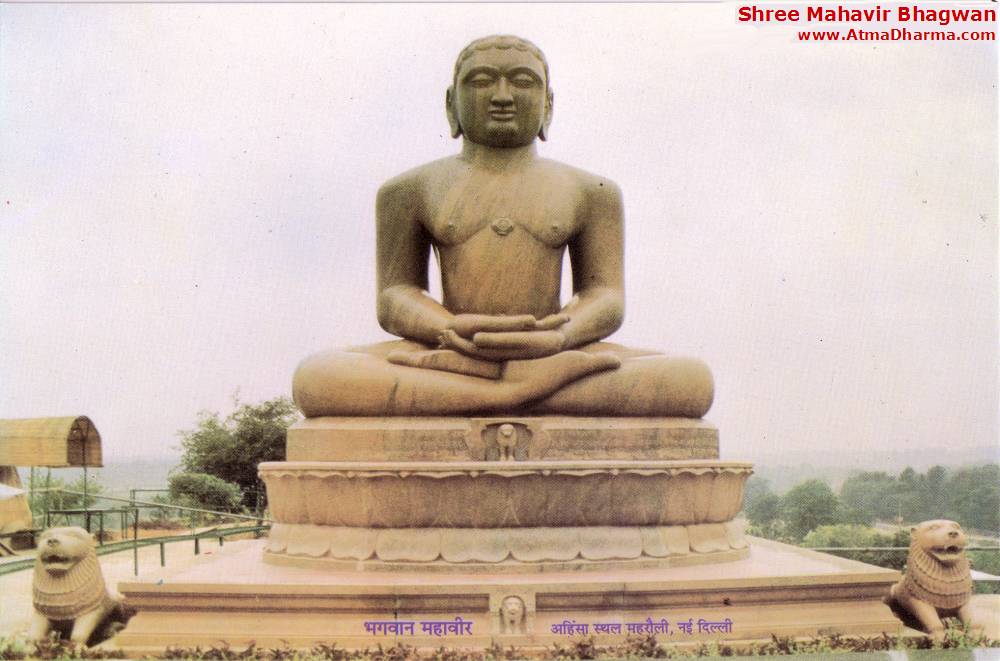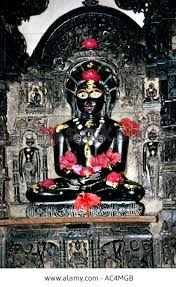Contribute
| Prof. V. P. Jain On Non-Violence Is The Cornerstone Of Jainism |
Jaspal Singh
03/02/2017
(This article is sponsored by Masala Art)
“The Jaina philosophy is a parallel strand to the Vedic
thoughts. It is pre-vedic in origin and belongs
in the ancient history of India” – said Professor Vimal Prakash Jain in a
well-documented lecture on Saturday, January 28, in an internal seminar of
India Discovery Center. Professor Jain,
a renowned authority on Jainism and Jaina faith, has been residing in Boston
area after his retirement. With analytic
research and scholarly references, he spoke about the development of the modern
Jainism and the breadth of the Jaina literature. Twenty members of the community attended the
lecture. His first reference was the mention of Rshavadeva and
Arishtanemi in the Vedic literature.
Rshavadeva has been accepted as the first Tirthankara of the Jaina
faith. Tirthankar Neminath is referred
as a learned teacher in prehistoric times through the purāṇa
literature. In Jaina faith, the
Tirthankara is liberated soul who helps a human being to realize his/her true
self. Mahavira was the twentyfourth Tirthankar. He was born around 600 BC. He compiled the existing teachings and added
new ones. He helped establish the modern
Jaina faith. He elaborated several
categories that underlie the basic structure of the Being. These categories
include- Jeeva and Ajeeva, living and
non-living; Dharma - the principle of motion, Adharma - the principle of rest;
and Akasha, space; and Kala, time. There are infinite number of souls who are
capable of getting liberated through their own efforts. They may or may not
find help from other realized beings on their way. Right Faith, Right knowledge
and Right Conduct are key to this liberation. Right Faith is the faith in true
nature of self. It is the faith in the constantly
changing nature of things around us realizing the transient nature of the
objects. Right Knowledge is the right view about self and that of all beings. Right Conduct is the truthful behavior towards
all. This basically amounts to
exercising nonviolence in all aspects of living. Dr. Jain pointed out that there are seven other metaphysical
categories laid down. They help in the
path of salvation of the soul. The first three are: Jeeva and Ajeeva:
living and nonliving; Asrava: influx of the non-living Karmic matter
into the soul. Next is Bandha, bondage. It defiles and keeps the soul
tied down to worldly existence by the force of passionate selfish activities of
the soul. Then we come to Samvara: This is the beginning of the process
of liberation of the soul. All details of righteous conduct come in here. All
religious scriptures of the Jains, the Hindus, Buddhists and others belong to
this and the next three closely associated categories. This is the way of
self-restraint or self-control, with the sole purpose of stopping the influx of
subtle Karmic matter into the soul by penances and austerities. The elimination and annihilation of the sinful
matter from the soul is known as Nirjara. For attaining Nirjara one must observe the
five vows of nonviolence. The final
stage is Moksha, the liberation. According to Jain thought there is no creator of the
universe. There is no beginning, neither
there is any end of the universe. It is
a world of permanence cum change. Mahavira articulated three basic principles for human beings
to live –ahimsa, non-violence; anekantavada, non-absolute view;
and aparigraha, non-possession. Nonviolence is not causing harm to any
being in speech,action or thought. Anekantavad
is non absolutism, realizing that there can be many ways of looking at the
world and phenomenon. Aparigraha is sharing or no- accumulation. They all have
to be practiced together. If one is missing others become meaningless. For example, he pointed out that nonviolence in
conduct is not possible without the attitude of sharing. A vigorous question and answer session followed his lecture.
Questions about history, ontology and ethics of the Jaina system of thought
were very eloquently answered by Dr. Jain. In answer to one of questions he
pointed out that although Jainism does not accept a God, Jainas do worship the
Tirathankaras as deities in temples. This has to do with social psychological
needs of people. In answer to another question, he pointed out that Jainism
became state religion of Karnataka.
Further history says that The Emperor Chadragupta Maurya died as a Jain
Monk. In answer to another question he
pointed out that Jainism holds women equal to men in all aspects. The audience thanked Dr. Jain for such an enlightened and
informative discussion on Jainism and thanked IDC and Dr. Bijoy Misra for
organizing it.
You may also access this article through our web-site http://www.lokvani.com/



